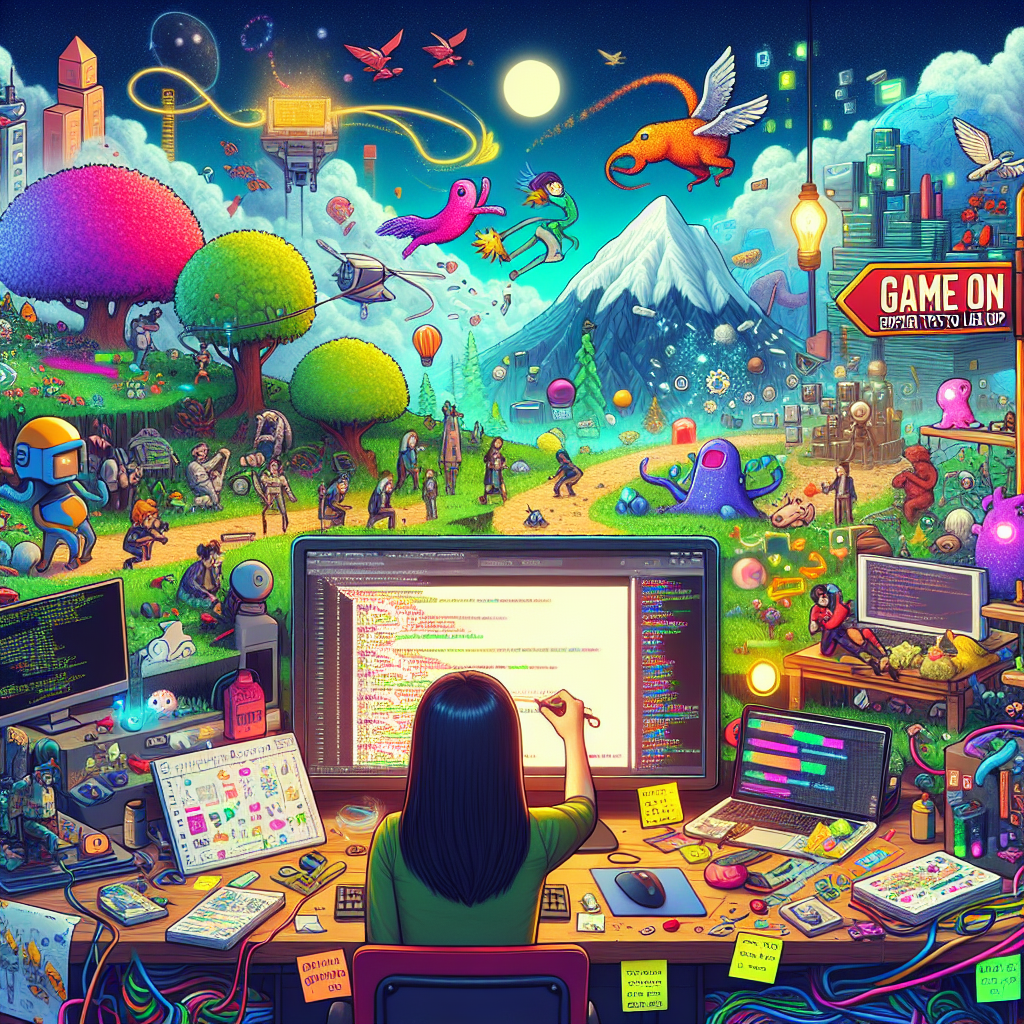Game On: Expert Tips for Indie Developers to Level Up
In the ever-evolving landscape of video game development, indie developers are carving out a significant niche, bringing innovative ideas and fresh perspectives to the industry. With the rise of platforms like Steam, Itch.io, and console marketplaces, the barriers to entry have lowered, allowing passionate creators to share their games with the world. However, navigating this competitive terrain can be daunting. Whether you’re a budding developer or a seasoned creator looking to refine your craft, here are expert tips to help you level up your indie game development journey.
1. Define Your Vision
Before diving into development, take the time to define your game’s vision. What makes your project unique? What emotions do you want to evoke in players? A clear vision serves as your guiding light throughout the development process and helps keep your project focused. Create a one-page game design document that encapsulates your concept, gameplay mechanics, art style, and target audience.
2. Build a Prototype
Once you have a solid vision, the next step is to build a prototype. This doesn’t have to be a fully polished version of your game; rather, it should showcase the core mechanics and gameplay. Prototyping allows you to test your ideas early on, gather feedback, and adjust your direction as necessary without committing substantial resources. Tools like Unity, GameMaker, and Unreal Engine provide user-friendly environments for prototyping.
3. Gather Feedback Early and Often
Feedback is invaluable in the game development process. Engage with playtesters early to understand their perspectives on your game. Use platforms like Discord, Reddit, or forums dedicated to indie development to find players willing to test your prototype. Pay attention to both positive and negative feedback and be open to making changes based on what you hear. A willingness to adapt can be the difference between a good game and a great one.
4. Prioritize Gameplay Over Graphics
While eye-catching graphics can draw players in, gameplay is what keeps them engaged. Focus on creating an enjoyable and rewarding experience before investing significant time in visuals. Well-crafted mechanics that are fun to play will help your game stand out, even with simpler art. Many successful indie games have thrived on unique gameplay concepts rather than stunning graphics.
5. Embrace a Strong Narrative
A compelling story can captivate players and enhance their emotional connection to your game. Whether it’s a simple tale or an intricate plot, invest time in world-building, character development, and dialogue. Balance narrative with gameplay to ensure players remain engaged. Remember that story doesn’t have to be linear; consider non-linear or environmental storytelling as creative ways to immerse players in your world.
6. Optimize Your Development Process
Efficient development is key to meeting deadlines and reducing burnout. Adopt project management tools like Trello or Asana to organize tasks, set milestones, and track progress. Version control systems such as Git can help manage changes to your project, making it easier to collaborate if you’re working with a team. Set realistic goals and celebrate small victories to maintain morale throughout the development process.
7. Market Early
Don’t wait until your game is finished to start marketing it. Develop a marketing strategy that begins in the early stages of your project. Share development updates on social media, create a website or blog, and engage with players to build a community around your game. Consider using platforms like Twitch or YouTube to showcase your development process, making your audience feel invested in the journey.
8. Network and Collaborate
The indie game development community is rich with talent and collaboration opportunities. Attend industry events, game jams, and local meetups to connect with other developers, artists, and potential partners. These relationships can lead to valuable advice, mentorship, and collaborative projects. Engaging in communities like TIGSource or IndieDB can also provide resources and support.
9. Learn to Code (or Collaborate)
While you may not need to become a coding expert, having a foundational understanding of programming can be immensely beneficial. It will enable you to communicate more effectively with developers if you’re working as part of a team. If coding isn’t your strength, consider collaborating with someone who excels in that area. Building a diverse skill set will enhance your capability as a developer.
10. Keep Learning
Game development is a field of continuous learning. Stay updated on industry trends, new tools, and techniques by following online courses, reading books, and engaging with tutorials. Websites like Gamasutra, Game Developer Magazine, and YouTube channels dedicated to game design can offer insights into various aspects of development.
Conclusion
Indie game development is a thrilling journey filled with challenges and opportunities. By defining your vision, actively seeking feedback, prioritizing gameplay, and engaging with the community, you can level up your projects and carve out your place in the gaming landscape. Remember, the most crucial element is to enjoy the process and let your creativity shine. Game on!




